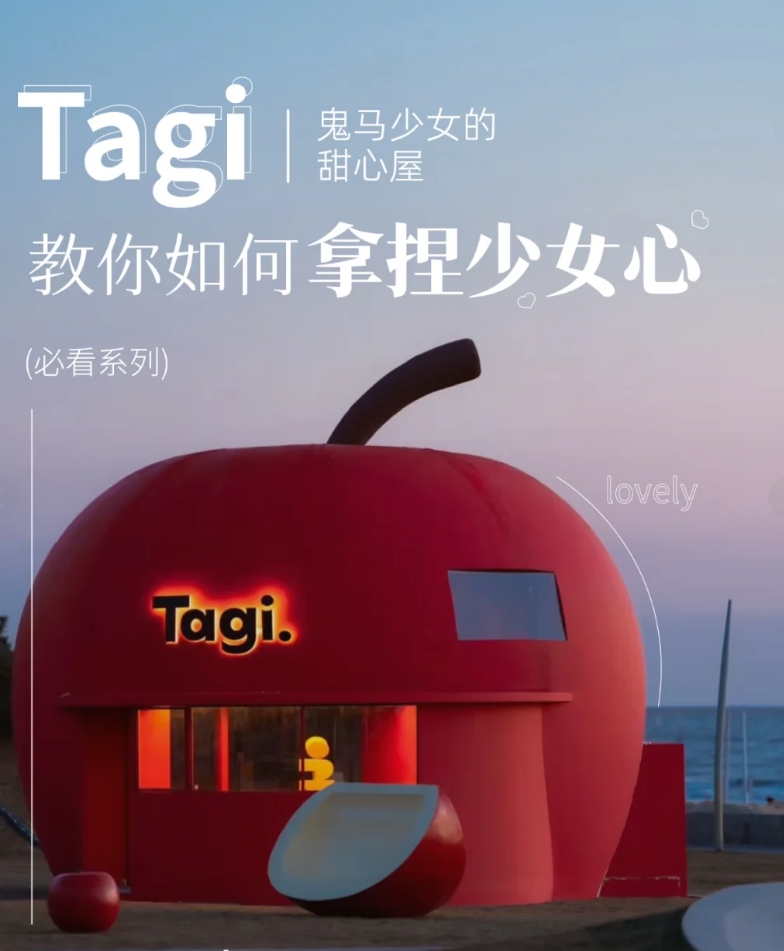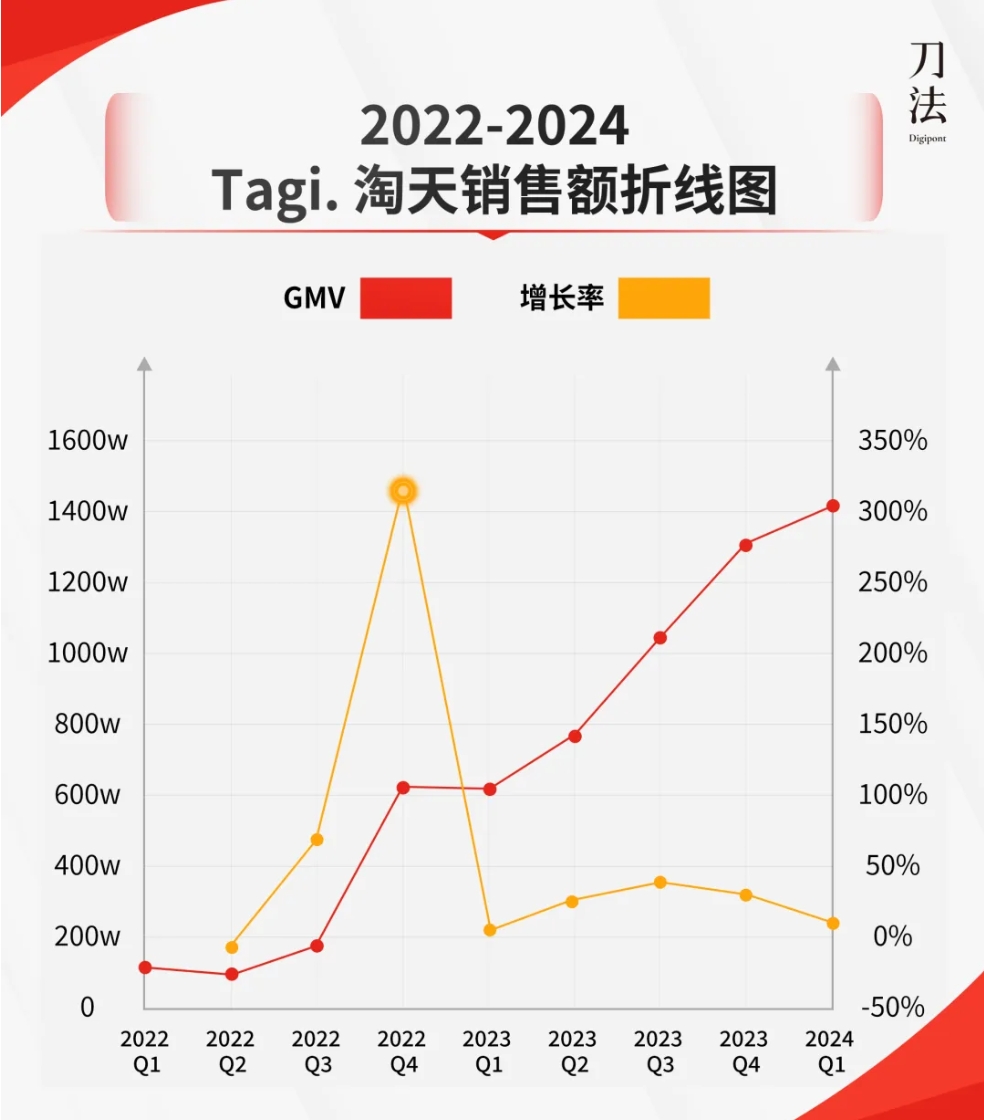Founded in 2019, Tagi. didn’t break into the market with competitive pricing or utilitarian features. Instead, it built its brand around the concept of “dopamine dressing,” turning its products into sources of visual and emotional stimulation. With bold colors and vibrant designs, Tagi.’s pieces are more than clothing — they are expressions of lifestyle and attitude, resonating with young women who seek self-pleasure and self-expression.

Creating an Immersive Fantasy — Offline Stores as Emotional Amplifiers
Tagi.’s physical stores are not just places to shop, but carefully crafted, photo-friendly fantasy spaces. Colorful window displays, oversized plush dolls, and pastel-colored walls create an immersive dream-like environment. These visually rich elements act as real-life filters, inviting consumers to take photos and share them on social media, which fuels viral growth.

Turning Consumers into Storytellers Through Tag Culture
Tagi. actively builds a narrative around its brand via social media, introducing terms like “dopamine girl” and “the fairy who refuses to wear black, white, or gray.” These tags invite users to participate in a lifestyle and cultural identity shaped by the brand. In doing so, consumers don’t just buy products — they become part of the story, increasing both loyalty and emotional connection.

Celebrity Endorsements Drive Breakout Success and Aspirational Appeal
Celebrity styling has further propelled Tagi.’s popularity beyond niche circles. More than just gaining traffic, the brand taps into the aspirational lifestyles and aesthetics of these public figures. Consumers subconsciously equate owning Tagi. with attaining the same sense of taste and lifestyle as their favorite stars — a compelling illusion that expands Tagi.’s influence rapidly.
Emotional Value as a Differentiator: Upgrading the Product Hierarchy
While Tagi. doesn’t hold clear advantages in basic functionality or fulfillment, it has successfully differentiated itself in the realm of “augmented value” — serving as a provider of emotional satisfaction. Its ability to evoke feelings through design, stores, and celebrity influence allows it to escape the trap of price-based competition and build pricing power. As Theodore Levitt once said, “The value of a product lies in the benefits perceived by the buyer or user.”

From Niche to Mass — Growth Brings New Challenges
Though Tagi. has made strides in establishing a distinct brand, it is still in the growth phase. As its influence spreads, questions around originality and product quality are beginning to surface. Scaling up while maintaining creative output and quality control will be crucial challenges for the brand moving forward.
Tagi.’s Growth Offers Three Key Lessons for New Consumer Brands
In a saturated market, emotional value offers a new point of entry.
While traditional category opportunities are fading, niche emotional needs — like the desire for joy, color, or self-expression — still offer room for breakthrough. Tagi. found its niche by tapping into the “dopamine” trend.
Brand positioning doesn’t need to be perfect from day one.
Tagi. fine-tuned its identity through ongoing interaction with users. This dynamic approach allowed it to adapt, stay relevant, and reduce the cost of trial and error.
Going offline doesn’t have to mean heavy investment.
Beyond permanent storefronts, formats like pop-ups, markets, and curated concept stores offer flexible, lower-risk entry points for DTC (Direct-to-Consumer) testing — enabling brands to quickly validate product appeal and brand desirability.
Rational Consumption May Be the Norm, But Irrational Desires Still Drive Growth
While “rational consumption” dominates mainstream discourse, actual consumer behavior is still heavily shaped by emotions, fantasies, and identity. Brands that capture these “irrational” desires and create value beyond utility may find themselves with a powerful edge — and a viable path to success in today’s complex market.
